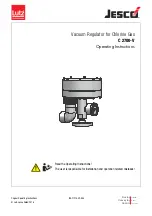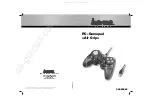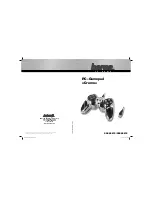
Product description
Design and function
9
© Lutz-Jesco GmbH 2016
Subject to technical changes.
160426
Vacuum Regulator for Chlorine Gas
C 2700-V
Operating Instructions
BA-21210-02-V05
4.2.3 Function description
Fig. 4-3: Vacuum Regulator for Chlorine Gas C 2700-V - cross-sectional view
Pressurised chlorine gas flows from the chlorine barrel to the vacuum
regulator. The vacuum regulator comprises the inlet valve (
1
) and the
membrane chamber (
3
). In the inlet valve the chlorine gas is under
overpressure, in the membrane chamber there is a vacuum.
The PVC output of the vacuum regulator is connected to the injector. A
sufficient vacuum draws the diaphragm disc (
4
) upwards and pushes
the valve cone (
2
) downward against the spring force. The inlet valve (
1
)
opens and the amount of chlorine required flows into the membrane
chamber (
3
). If the vacuum is not sufficient, the spring closes the
system again. This results in a constant vacuum in the piping down-
stream of the vacuum regulator.
A constant vacuum ensures maximum system safety: In the event of a
leak, ambient air is drawn into the tube without enabling a dangerous
amount of chlorine gas to escape into the atmosphere.
If the valve cone (
2
) does not close properly due to heavy soiling, slight
overpressure builds up in the membrane chamber (
3
). In the event of
such faults, the safety valve (
5
) in the diaphragm disc opens and vents
the system vents to a neutralisation system, e.g., a chlorine eliminator
or an activated carbon cartridge.
Atmosphere
Chlorine (vacuum)
Chlorine (overpressure)
4
3
2
5
1










































